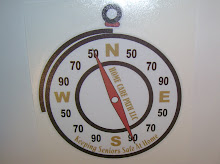Patient portals offer a senior access to health care providers through the computer. Patient portals are described as having the ability to save both the patient and the health care provider time. This increases efficiency and productivity. The patient is interacting with their own medical information through the home computer screen.
The patient portal offers a secure connection with the seniors health information over the computer. Portals are bound by HIPAA regulations. A patient portal could allow the senior to register and update required clinic forms on line before the doctor visit to save time in the waiting room. A patient portal would allow seniors to request prescription refills, or view recent lab reports through the internet.
Patient portals provide a safe connection to the one health care organization. A senior using the services of multiple health care organizations would be required to log in to each orgaization individually. This leaves the senior with a fragmented view of their health information.
The use of patient portals will eventually evolve to a complete conversion to a full blown electronic medical records system. Personal health records would become more commonly shared between organizations. The improved availability of information would include privacy and security. The senior would be able to access medical records in one spot on a home computer screen. Faster and more convenient for the senior.
Sunday, October 31, 2010
Subscribe to:
Post Comments (Atom)

No comments:
Post a Comment